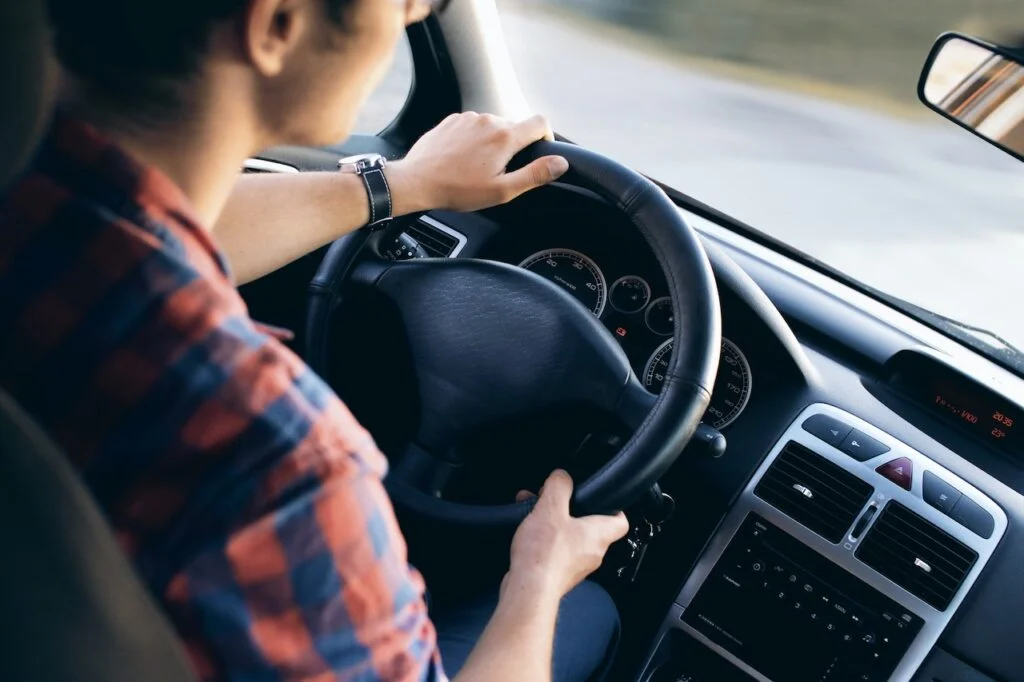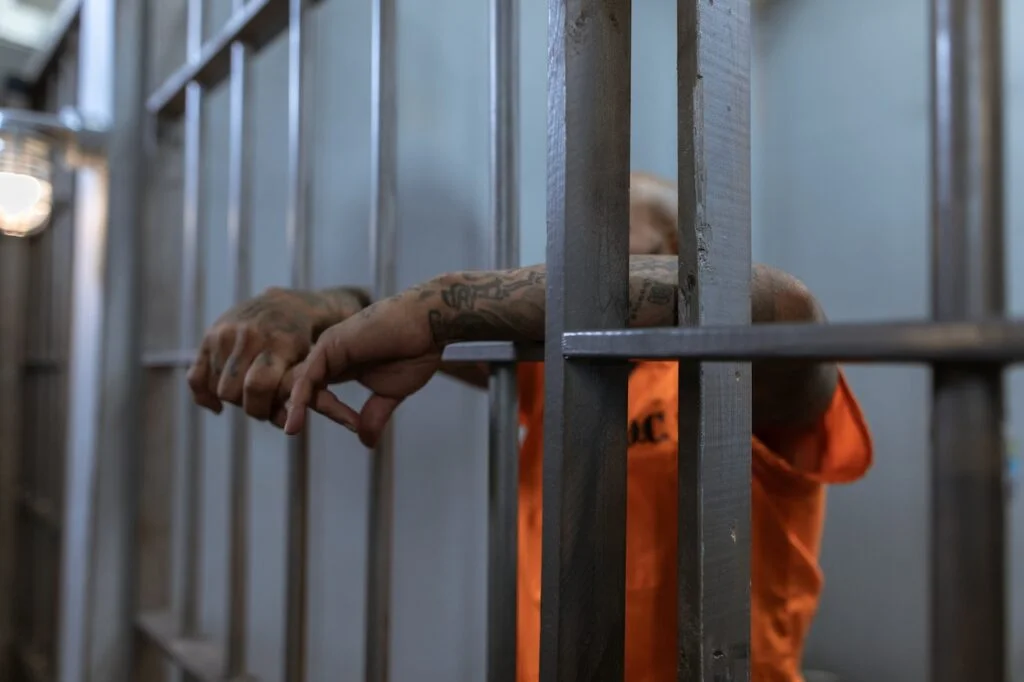DUI Charges In Alameda County, California

When you or someone you know faces the possibility of a DUI conviction, it’s important to understand the driving under the influence laws and regulations in Alameda County so that you can mount an effective defense. The state of California has specific criteria revolving around blood alcohol concentration (BAC), and when found operating a motor vehicle with a blood alcohol content above the legal limit, the consequences can be severe.
Not only can DUI convictions lead to license suspension, they can also result in jail time for repeat offenders. Beyond the legal implications, alcohol consumption and driving pose a grave risk to community safety. According to the National Highway Traffic and Safety Administration, 37 people lose their lives every day due to alcohol-impaired driving. Statistics show that over 13,000 people died as a direct result of DUIs in 2021. Driving under the influence also referred to as driving while intoxicated (DWI) is a pandemic in most American cities. So, please exercise caution and do not under any circumstance operate a motor vehicle while intoxicated.
What is a Driving Under the Influence (DUI) Charge?
A DUI charge, an acronym for “Driving Under the Influence,” refers to the criminal offense of operating a motor vehicle while impaired by alcohol or other drugs, including those prescribed by physicians. This impairment is typically measured by a blood alcohol concentration (BAC) level, and if a driver’s BAC surpasses the legal limit set by the jurisdiction, they can be charged with a DUI. The charge underscores the inherent risks and potential harm caused by impaired driving, both to the driver and others on the road.
What is the Blood Alcohol Concentration (BAC) legal limit in California?
The BAC legal limit varies depending on the jurisdiction and the type of driver. In California, the legal BAC limit for standard adult drivers (21 years and older) is 0.08%. However, commercial drivers often have a stricter limit, typically set at 0.04%. For individuals under the age of 21, many jurisdictions enforce a zero-tolerance policy, meaning any detectable amount of alcohol can lead to a DUI charge.
It’s important to note that the exact limits and rules might vary by state or country, so one should always verify the BAC legal limit specific to their location or situation.
Common Types of DUI Charges in Alameda County, CA

Standard DUI
If you’re arrested for a DUI, especially if it’s your first DUI, it typically falls under the category of a Standard DUI. This is when you’ve consumed alcohol or drugs and your ability to drive safely is compromised. The state law stipulates that if your blood alcohol level exceeds the 0.08% BAC limit, you can face a DUI charge. This type of charge may lead to penalties such as driver’s license suspension, fines, and even jail time. It’s crucial to note that law enforcement often relies on field sobriety tests, which might include tasks like walking in a straight line or sobriety checkpoints, to gauge a driver’s impairment.
Underage DUI
California enforces a strict zero-tolerance policy when it comes to underage drinking and driving. If you’re under 21 and have consumed any alcoholic beverage, even a trace amount detectable in a blood test or blood sample, can lead to a DUI arrest. This means the BAC limit for those under 21 is essentially 0.00%. Penalties can range from driver’s license suspension to mandatory alcohol education programs, even if it’s a first offense.
Commercial DUI
If you operate a commercial vehicle, you’re held to a higher standard concerning DUI. Given the potential risks associated with commercial vehicles, the BAC limit is set at 0.04%. A Commercial DUI charge can jeopardize not only your driving privileges but also your professional livelihood. As a result, even if you’ve consumed a smaller amount of alcohol, you’re more susceptible to a DUI or DWI charge.
Felony DUI
While many DUI offenses are classified as misdemeanors, certain situations can escalate the charge to a felony. These include when a repeat offender, usually someone with three prior DUIs within ten years, faces a third DUI. Additionally, if the offense occurred resulting in bodily injury or death, or if you’ve had prior felony DUI convictions, you can be charged with a Felony DUI. Such charges often carry severe penalties, from prison time to longer driver’s license suspensions.
Wet Reckless DUI
The term “wet reckless” refers to a reduced charge from a standard DUI. If, during your DUI case, there’s other evidence that casts doubt on the influence of alcohol or if you cooperated fully with the police officer, you might have the option to plead to a “wet reckless” charge. While this charge is still a criminal offense, it typically comes with lighter penalties than a standard DUI. However, it’s worth noting that if you face subsequent offenses, a “wet reckless” can count as a prior DUI conviction.
Drug DUI (DUID)
Driving under the influence isn’t limited to just alcohol. In California, you can also be arrested and charged with a DUI if you’re found operating a vehicle while impaired due to drugs, commonly referred to as a Drug DUI or DUID. This encompasses a broad range of substances, from illegal narcotics to prescription medications and even over-the-counter drugs if they impair your ability to drive safely. Being under the combined influence of both alcohol and drugs, even if neither alone would result in a DUI, can lead to a conviction if the combined effects impair your ability to drive. This is especially concerning given the interactions some prescription drugs can have with alcohol, amplifying the effects.
What is the Arrest Process for DUI Offenders in California?

Understanding the DUI arrest process in California is crucial. If you find yourself in this situation, knowing what to expect can help alleviate some of the stress and uncertainty. It’s also a reminder of the gravity of driving under the influence and the stringent procedures in place to address it. Always prioritize your safety and the safety of others when on the road. Here is a general step-by-step process of a DUI arrest:
Suspicion & Initial Stop
If a law enforcement officer observes signs of impaired driving, such as swerving, erratic braking, or speeding, they will initiate a traffic stop. Always remember, even at this early stage, your actions and demeanor play a role.
Questioning & Observation
Upon approaching your vehicle, the officer will look for signs of intoxication. This can include slurred speech, the smell of alcohol, or bloodshot eyes. You may be asked questions regarding your recent activities, specifically if you’ve consumed alcohol or drugs.
Field Sobriety Test
If the officer believes you might be under the influence, you may be asked to perform a field sobriety test. This can include tasks like walking in a straight line, standing on one leg, or following a moving object with your eyes. It’s important to note that while you can decline this test, refusal can arouse further suspicion.
Preliminary Alcohol Screening
With a handheld breathalyzer, the officer may check your blood alcohol concentration (BAC). This preliminary test gives a quick estimate of your BAC. If you’re near or above the legal limit, this will provide grounds for arrest.
Arrest
If the officer has enough evidence from the tests and observations, you will be formally arrested for DUI. You’ll be read your rights, handcuffed, and taken to the police station.
Chemical Testing at the Station
At the station, you will undergo more accurate chemical testing, which can include a breath, blood, or urine test. Under California’s implied consent law, refusing this test can lead to harsher penalties, including an automatic license suspension.
Booking
Following the tests, you’ll be booked. This involves recording your personal information, details of the alleged crime, and taking fingerprints and photographs.
Bail & Release
In many cases, you may be released on bail. The amount can vary based on the severity of the offense and any prior DUI convictions. If you cannot post bail, you’ll remain in custody until your arraignment.
Arraignment
This is your first court appearance. You’ll be informed of the charges against you, and you’ll have the opportunity to enter a plea (guilty, not guilty, or no contest). It’s strongly advised to have legal representation by this stage.
Trial & Sentencing
If you plead not guilty, your case will proceed to trial. If found guilty, the subsequent sentencing phase will determine your penalties, which can include fines, jail time, educational programs, and more.
The Consequences of a DUI Conviction in California

Loss of Driving Privileges
One of the immediate consequences you’ll face after a DUI conviction is the suspension or revocation of your driver’s license. Your ability to commute, run errands, or travel can be seriously impacted. Even if you’ve never been involved in an incident while under the influence, just the act of driving with your ability impaired by alcohol or drugs can lead to this consequence. Depending on the severity of the offense and any prior convictions, the suspension can range from several months to years.
Financial Penalties
DUI convictions often come with hefty fines. When found guilty, you can expect to pay significant amounts, not just in fines, but also in associated court costs. Furthermore, your car insurance premiums will likely rise, costing you more in the long run. These financial repercussions serve as a reminder to think twice before you drink alcohol and decide to get behind the wheel.
Mandatory Education and Rehabilitation
If you’re convicted, attending mandatory alcohol or drug education programs might be part of your sentence. These programs aim to reinforce the dangers of driving under the influence and promote safe driving habits. In some cases, you may also need to attend rehabilitation or undergo drug screening, especially if controlled substances or prescription drugs were found present in your system.
Jail Time or Community Service
For more severe offenses or repeated DUI convictions, jail time is a very real possibility. Even first-time offenders might face minimum jail sentences. If you’re fortunate to avoid jail, community service often serves as an alternative. While serving the community, you’re expected to reflect on the gravity of your actions.
Ignition Interlock Requirement
Some drivers convicted of DUI may be required to install an ignition interlock device in their vehicles. This device requires you to submit a breath sample before starting the car. If any intoxicating liquor is detected, the vehicle won’t start. It’s a continuous reminder of the commitment you must make to safe driving after a DUI conviction.
Potential Employment Consequences
Many employers conduct background checks. A DUI conviction can potentially harm your career prospects, especially if your job requires driving or operating machinery. Even current employers might view such a conviction negatively, especially if you’re in a position of responsibility or trust.
Implied Consent Consequences
Many states operate under the “implied consent law,” which means that by obtaining a driver’s license, you’ve given your consent to chemical testing if a law enforcement officer suspects you’re under the influence. Refusing to undergo a field sobriety test or other forms of testing can lead to automatic penalties, often harsher than those of a DUI conviction itself.
How to Defend Yourself Against a DUI Charge in Alameda County

1. Hire an Experienced Attorney
This has to be your first step in defending yourself against a DUI charge because a good defense attorney will help you navigate the other steps that you need to follow during this process. Selecting the right legal representation is important. An attorney experienced in DUI defense and familiar with Alameda County’s legal system can be your greatest asset.
They can navigate the intricacies of the law, ensure your rights are protected throughout the proceedings, and offer tailored guidance based on their knowledge of local legal nuances. The right attorney can make the difference between a conviction and a favorable outcome. Louis J. Goodman is an experienced defense attorney with over three decades of experience in the Alameda County legal system. If you are facing a DUI charge and need a competent defense lawyer, contact him right now for a free consultation.
2. Review and Gather Evidence
Upon securing legal representation, it’s essential to consolidate all the pertinent information regarding your case. This involves documenting every detail of the arrest. Remember, minute details that may seem insignificant to you can sometimes play a pivotal role in your defense. It’s also essential to understand the evidence against you.
Request information from the prosecution to gauge the strength of their case. This includes obtaining police reports, witness statements, and results of chemical tests. A comprehensive review of this evidence allows you and your attorney to identify potential weak spots in the prosecution’s case.
3. Challenge the Arrest and Tests
Armed with the relevant details, the next step is to scrutinize every aspect of the arrest procedure. Begin with the initial traffic stop: Was there a valid reason for it? A baseless stop can render subsequent evidence inadmissible.
Field sobriety and chemical tests are also ripe for examination. Were they administered correctly? Was the equipment used for the tests maintained properly? Errors or inconsistencies in these areas can provide grounds to challenge the prosecution’s evidence, potentially leading to the dismissal or reduction of charges.
4. Negotiate or Prepare for Trial
At this juncture, depending on the strength and validity of the evidence against you, there are two primary routes to consider. One is negotiation. A skilled attorney may engage with the prosecution to discuss possible plea deals or a reduction in charges, especially if there’s doubt regarding the evidence’s strength or admissibility.
On the other hand, if a plea deal isn’t in your best interest, preparing for trial becomes the focus. This involves organizing your defense, preparing for cross-examinations, and, if necessary, seeking expert testimonies to bolster your case.
5. Explore Sentencing Alternatives or Appeal
If you’re convicted, it doesn’t necessarily mean you’ll face the harshest penalties. Alameda County offers various alternative sentencing options for DUI offenders, particularly if it’s a first offense. These can range from DUI educational programs to community service. Always consult with your attorney about these alternatives.
However, if the court’s decision seems unjust or if there were significant legal errors during the trial, an appeal might be in order. Discuss the feasibility of this option with your attorney, as an appeal can be a way to rectify an unjust conviction.
Tips for Avoiding a DUI Charge in California
Throughout the DUI process, from the preliminary alcohol screening test and chemical test taken during an arrest, law enforcement officers use tools like field sobriety tests to gauge whether a driver is under the influence of alcohol. This could involve simple tasks like walking in a straight line or more advanced methods like blood alcohol testing using a blood sample. Sobriety checkpoints are also a common practice by police officers to combat drunk driving.
1. Understand Your Limits
Before you consume any alcohol, it’s essential to recognize your body’s tolerance. Everyone metabolizes alcohol differently. Factors like weight, age, gender, and the amount of food consumed can influence how quickly alcohol affects you. Familiarize yourself with standard drink sizes and keep track of your intake. Remember, just because you feel okay to drive doesn’t mean your blood alcohol concentration (BAC) is below the legal limit.
2. Designate a Sober Driver
If you plan to drink, designate a sober driver before heading out. This ensures that someone is responsible for getting everyone home safely. By making this decision ahead of time, you eliminate the temptation to get behind the wheel after consuming alcohol.
3. Utilize Rideshare Services and Taxis
In today’s world, transportation options abound. Companies like Uber and Lyft, along with traditional taxis, are readily available in most urban and suburban areas of California. If you’ve consumed alcohol and don’t have a designated driver, utilize these services. It’s a small price to pay compared to the costs and consequences of a DUI charge.
4. Stay Overnight
If you’re at a friend’s house or an establishment that allows overnight stays, consider sleeping over if you’ve consumed too much alcohol. This not only ensures your safety but also protects other road users.
5. Attend DUI Awareness Programs
Sometimes, the best prevention comes from understanding the consequences. Participating in DUI awareness programs can give you firsthand accounts of the dangers and repercussions of driving under the influence. These programs often use real-life examples to emphasize the potential devastation caused by impaired driving.
6. Limit Your Alcohol Consumption
If you know you’ll be driving, the safest option is to avoid alcohol altogether. However, if you choose to drink, limit your consumption. This might mean setting a personal limit that’s well below the legal BAC or spacing out your drinks and consuming water or non-alcoholic beverages in between.
7. Wait It Out
Alcohol takes time to metabolize. If you’ve consumed more than planned, wait before considering driving. Time allows your body to process and eliminate alcohol. As a general rule, your body metabolizes about one standard drink per hour. However, this can vary, so always err on the side of caution.
8. Be Aware of Medications
Some medications can intensify the effects of alcohol or impair your ability to drive on your own. Always read labels and consult with your pharmacist or doctor. If the medication has a warning against operating heavy machinery or driving, heed that advice.
Facing a DUI Charge in Alameda County? Contact Defense Attorney, Louis J. Goodman
Driving while intoxicated (also called driving while impaired or DWI in other states) is treated seriously by state law. Practice caution. Do not put your life or the lives of other road users in danger. But, in the unfortunate event that you are facing a DUI charge, your rights have to be protected. By law, you need to have a proper defense and be able to present your case against facing a conviction. This would require you to get a dedicated and experienced attorney. As we mentioned earlier, an experienced defense attorney could mean the difference between jail time and an exoneration from the charge.
With over 30 years of experience in criminal law, Louis J. Goodman brings a unique perspective to the table having served as an Alameda County Deputy District Attorney, a private practitioner, and a Judge Pro Tem. He acknowledges the challenges faced by law enforcement in protecting the public while also understanding the profound impact judicial decisions have on individuals, families, and businesses. Louis’ primary goal is to guide you in making significant positive changes in your life, which can in turn help mitigate the consequences of the criminal justice system. If you are facing DUI charges get in touch with Louis J. Goodman today.
Frequently Asked Questions about DUIs in California
1. What is the penalty for a first-time DUI in California?
For a first DUI conviction, DUI offenders may face penalties such as probation, fines, a DUI or DWI program, and a license suspension. The focus is on rehabilitation and education, ensuring that the person charged understands the dangers of driving under the influence. The blood alcohol concentration (BAC) limit for adults 21 and over is 0.08%. However, there’s a zero-tolerance policy for drivers under 21, meaning any detectable amount of alcohol in their system can lead to DUI charges.
2. How long do you go to jail for a DUI in CA?
For a first-offense DUI, the jail time can range from 48 hours to 6 months. However, subsequent offenses can lead to longer jail time. For example, a second offense within ten years may result in 96 hours to a year in jail, while a third DUI can lead to 120 days to a year of imprisonment.
3. Does a DUI ever go away in California?
A DUI conviction remains on one’s driving record for 10 years. However, the criminal offense can stay on your criminal record indefinitely unless expunged.
4. Is DUI a felony in California?
While most DUI charges are misdemeanors, a DUI can become a felony if the offense occurred with bodily injury, it’s the offender’s fourth DUI within ten years, or the person charged has prior felony DUI convictions.
5. Can you go to Canada with a DUI?
Canada has strict rules on admitting individuals with DUI convictions. If you have a DUI, you might be deemed inadmissible.
6. What happens after 3 DUIs in California?
A third DUI within ten years is treated severely, with minimum jail time ranging from 120 days to a year, license suspension for three years, mandatory DUI programs, and other penalties.
7. Do you have to go to court for a DUI in California?
Yes. Following a DUI arrest, the person charged must appear in court for their DUI charge. This ensures legal proceedings are followed and the accused’s rights are protected.
8. How can I avoid jail time for a DUI in California?
While there’s no guaranteed way to avoid jail time, hiring an experienced attorney can help. Some may receive community service, probation, or be required to attend alcohol education programs as an alternative.
9. How long do you lose your driving privileges in California with a DUI?
For a first-offense DUI, your driver’s license can be suspended for 6 months. Subsequent offenses within ten years can result in longer license suspension periods.
10. Can you get deported in California for a DUI?
Certain aggravated DUIs can lead to deportation, especially if they involve factors like bodily injury or if they’re combined with other criminal offenses.
11. How do I clear my DUI in California?
Expungement might be an option, but specific criteria must be met, including successfully completing probation.
12. How long is probation for DUI in California?
For a first DUI, probation can range from 3 to 5 years. Subsequent offenses may lead to longer probation periods.
Request A Free Case Evaluation
Fields marked with an * are required
"*" indicates required fields



